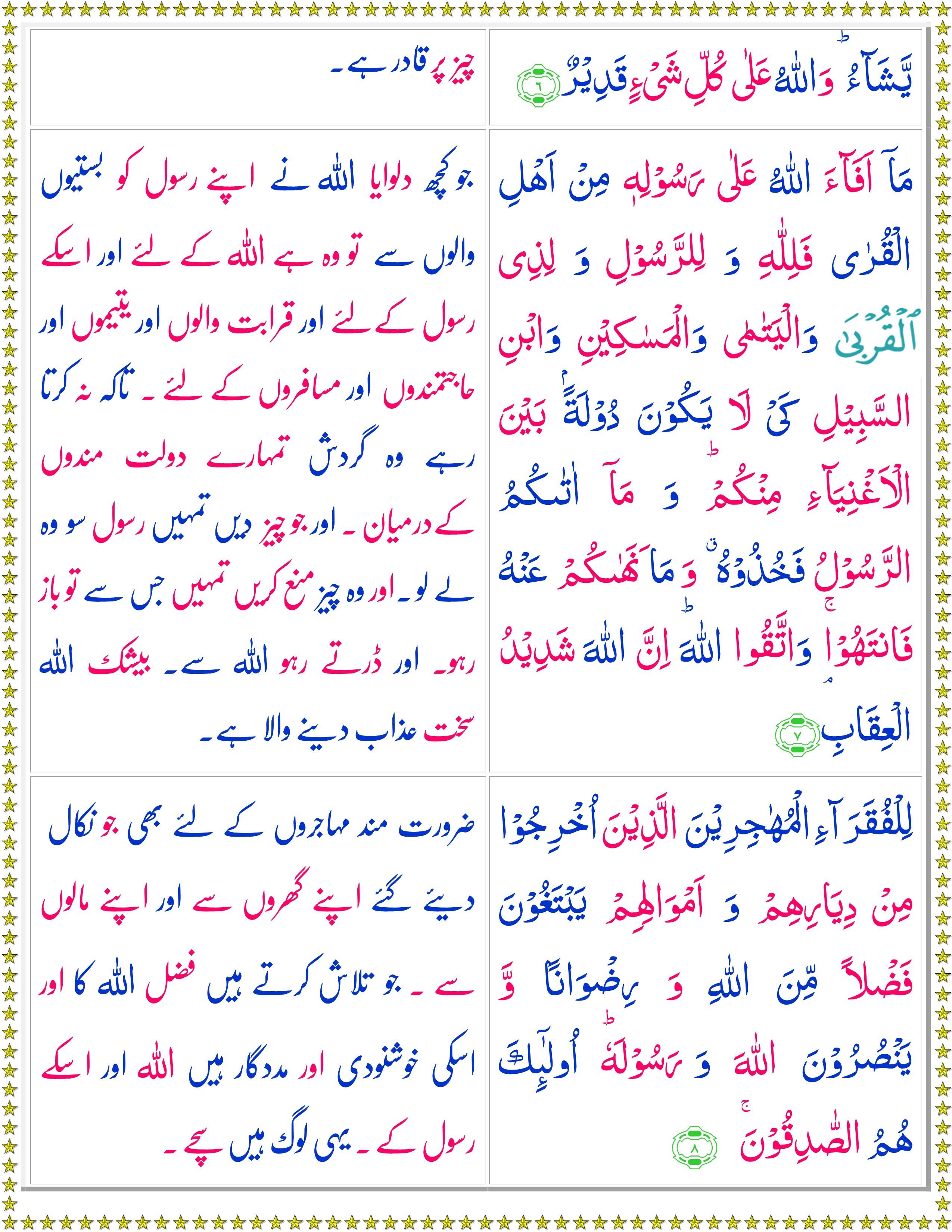
The same thing is supported by a tradition of Abdullah bin Abbas: The Muslims were confused because some of them had cut the trees and others had not therefore, they wanted to ask the Prophet (peace be upon him) as to who would be rewarded for the act and who would be punished (Nasai). At last Allah sent down this verse and approved the act of both. Some said it was permissible and some said it was not. On the contrary, Mujahid and Qatadah say that the Muslims had on their own cut down the trees, then a dispute arose among them whether what they had done was permissible or not. The same also has been reported by Yazid bin Ruman (Ibn Jarir). (Bukhari, Muslim, Musnad Ahmad, Ibn Jarir). Abdullah bin Umar has reported that the Prophet (peace be upon him) himself had ordered it. The traditionists in their traditions have disagreed the point whether the order to cut and burn the trees had been given by the Prophet (peace be upon him) himself, or whether the Muslims had done it of their own accord, and then later asked the Prophet (peace be upon him) about its legal aspect. Allah gave them the satisfaction that both the acts, cutting down some trees to facilitate the siege and leaving some other trees standing which did not obstruct the siege, were in accordance with divine law. Since due to the objection of the Jews and the hypocrites, or due to their own thinking, they had been involved in the misgiving whether they were guilty of spreading disorder in the earth. One may ask: This verse of the Quran could satisfy the Muslims, but how could those who did not accept the Quran as divine word be satisfied at this reply to their objection that both acts were permissible as they had Allah’s permission for it? The answer is: This verse of the Quran was sent down to satisfy only the Muslims it was not sent down to satisfy the disbelievers. However, this is not permissible for the purpose of mere destruction and pillage. But the majority of the jurists hold the view that for the sake of important military operations it is permissible. Imam Auzai, Laith and Abu Thaur hold this same opinion. It does not make it generally permissible that whenever war necessitates, trees of the enemy be cut down and burnt. Some of the Muslim jurists have overlooked this aspect of the matter and expressed the opinion that the permissibility of cutting the trees of the Bani an-Nadir was confined only to that particular event. Thus, Abdullah bin Masud has given this explanation in the commentary of this verse: The Muslims had cut down only those trees of the Bani an- Nadir that stood on the battlefield. But the specific command in respect of the war exigencies is that if destruction is necessary for military operations against the enemy, it is lawful. This was precisely in accordance with the Quranic teaching, which condemns those who spread chaos: When they get power they direct all their efforts towards spreading corruption in the land, destroying harvests and killing people. In this matter, the general instruction is the same which Abu Bakr Siddiq gave while dispatching the Muslim army to Syria: Do not cut down fruit trees, do not destroy crops, do not ravage the settlements. But spreading disorder in the world is that an army under the fit of war hysteria should intrude into the enemy territory and start destroying the crops, cattle, gardens, houses and everything in its way without any reason.


The legal injunction that is derived from this verse is that the destruction caused for the sake of military operations does not come under spreading disorder in the world. At this Allah sent down the command: Whatever trees you cut down, or whatever you left standing, your neither act was unlawful, but it had Allah’s permission. At this the hypocrites of Al-Madinah and the Bani Quraizah, and the Bani an-Nadir themselves raised a clamor, saying that, on the one hand, Muhammad (peace be upon him) prohibited spreading disorder in the world, but, on the other hand, fruit trees were being cut down by his command, which amounted to spreading disorder in the world. The reference is to the fact that the Muslims cut down or burnt many of the palm-trees that stood in the oases around the settlement of the Bani an-Nadir in order to facilitate the siege, However, they left those trees standing which did not obstruct the military operations. (Allah granted you this leave) in order that He might humiliate the evil-doers. (59:5) The palm-trees that you cut down or those that you left standing on their roots, it was by Allah’s leave that you did so.


 0 kommentar(er)
0 kommentar(er)
